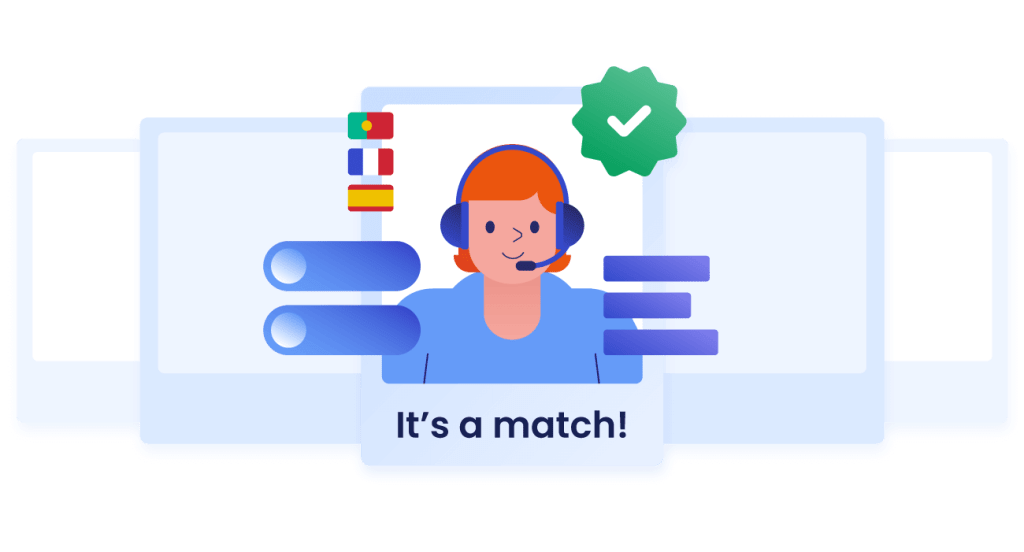Skills-based routing aims to make customer service more efficient and assertive by connecting the right person at the right time to address your customer’s needs.
In a basic call routing procedure, omnichannel routing (the contact distribution process) works just like routing calls in traditional call centers – except it includes more channels, such as e-mail, SMS, or video.

A contact center must choose its best call-assignment strategy: skills-based routing, most idle agent, most available agent, last agent routing, or cascade.
If your customers complain about having to go through multiple service reps before solving their queries, you should consider skills-based routing.
What is skills-based routing
Skills-based routing (SBR), or skills-based call routing, is a strategy used in call centers to allocate incoming calls to the most suitable agent, instead of simply choosing the next available agent. This system matches callers to agents based on required skills, such as language spoken or areas of expertise.
By providing information about your agents’ particular skill sets, you can define how customers should be routed to be matched with the most qualified agent for their particular need. This strategy ensures that customers feel valued and enables businesses to provide an exceptional service experience, thereby improving the customer experience.
Key benefits of skills-based routing
While improving customer experience is the most evident benefit, skills-based routing can also enhance internal workforce operations. Let’s take a closer look at the specific benefits:
Improve Customer Satisfaction
SBR ensures that customers are assisted by the right, skilled agent who has the appropriate tools and knowledge. Customer satisfaction increases when a contact center has a specialized team with exceptional skills. This guarantees that problems are handled by the most highly trained agents for the specific matter.
Increase First-Call Resolution
Skills-based routing finds the perfect match for your customer. Calls are distributed to agents with relevant skill sets, increasing their chances of solving issues on the first call. This enables call centers to reduce handling time and boost first-call resolution rates.
Reduce Agent Training
By identifying the relevant skills that a contact center agent already possesses and building a routing strategy around them, you can reduce the need for extensive training. This approach allows agents to focus on their strengths, leading to more efficient problem-solving.
Performance Management
Skills-based routing can also improve the performance and productivity of agents. Allowing agents to handle requests that align with their skills can reduce the average time spent with callers, enabling them to assist more people more efficiently.
Comment Collab peut vous aider
The contact center software and its integration with CRM and business applications are essential for delivering exceptional customer experiences. At Collab, we offer a 360º contact center solution that combines multiple communication channels within a single interface.
Our OneContact platform provides several routing strategies built into its Intelligent Router. These strategies are immediately available, with no need to design specific routing scripts. One of the options provided is skills-based distribution.

